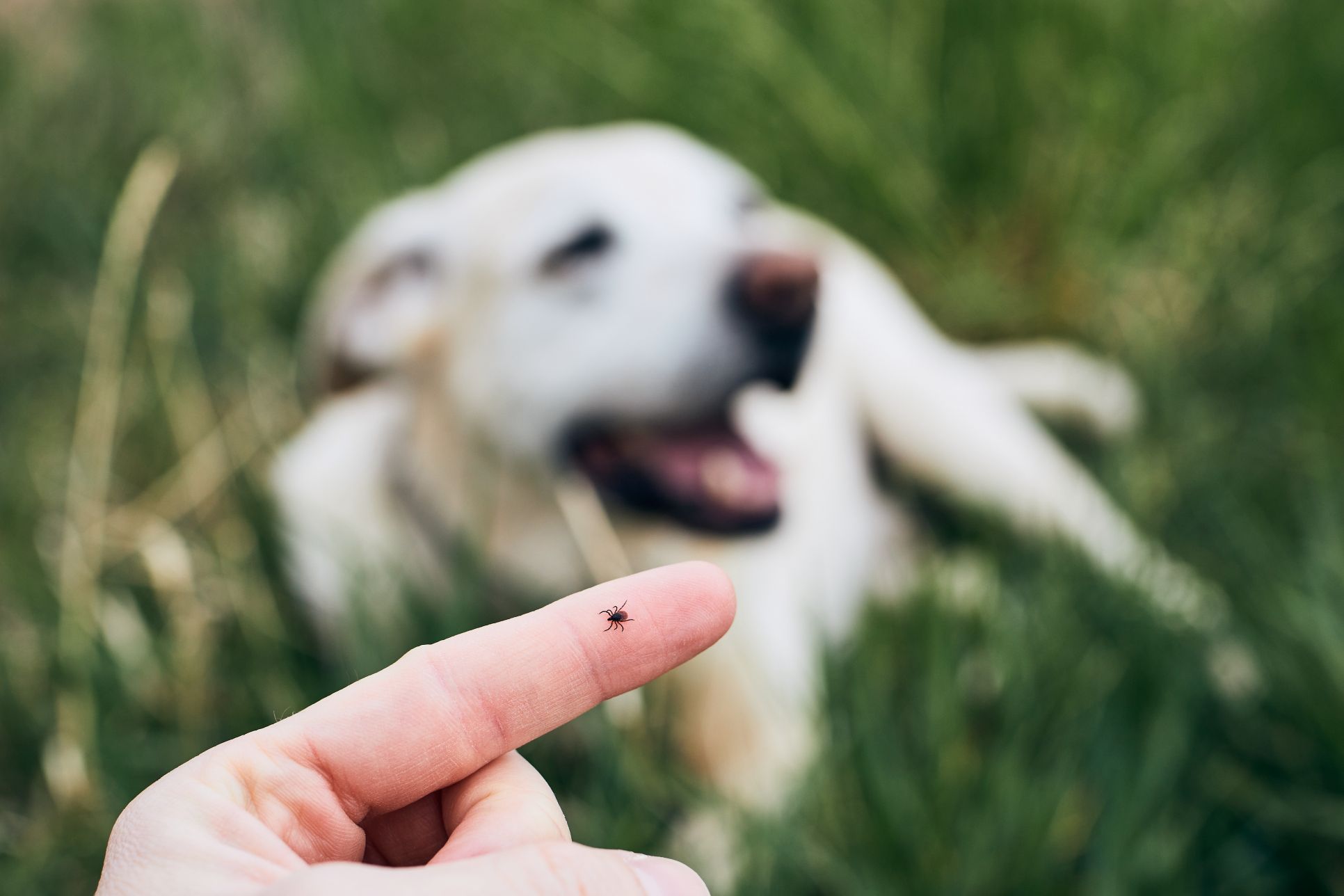How to Detect, Treat, and Prevent Fleas and Ticks Year Round

If you’re like many other pet owners, you believe that fall is an excellent time to take a break from administering monthly parasite prevention medication to your pet. Unfortunately, our temperate climate makes it so that fleas, ticks, and mosquitoes don’t ever take a break during the fall and winter. On the contrary, they remain a threat to pet health all year long. Year-round flea and tick prevention is the only way to safeguard a pet’s health, and we’ve got you covered.
The Thing About Fleas
Fleas are an absolute nuisance that are capable of surviving near-freezing temperatures and thriving in warm, humid climates. As soon as the weather turns a corner toward the cold, fleas instinctively find their way indoors on the backs of mammalian hosts like cats and dogs. Once inside, they can wreak havoc on your pet’s skin and coat, and reproduce themselves in astonishing fashion.
A flea infestation is more than just a headache, however. Flea allergy dermatitis is a common condition responsible for intense itching and excessive scratching. Biting, chewing, licking, and rubbing the skin can result in secondary skin infections. Fleas are resistant to insecticides during certain life-stages, which makes eradication particularly frustrating, time-consuming, and expensive.
Fleas can also lead to your pet becoming infected with intestinal parasites. Some fleas carry tapeworm eggs and, when your pet ingests the flea during their normal grooming, they can become the new hosts for the tapeworms. Keeping your pet on flea prevention medication can reduce the risk of intestinal parasites by decreasing the number of fleas present in their environment.
Do your pet a favor (and, really, your entire household) and keep them up to date on their flea and tick prevention 365 days a year. You could also be saving them from tapeworms and anemia.
They’re Hardy, They’re Ticks
Ticks remain active as long as the temperature stays over 32 degrees fahrenheit. They shield themselves from the weather on the undersides of leaves (among other places), simply lying in wait for any type of prey to amble by.
Transmission of various tick-borne illnesses is possible after a blood meal lasting 36 hours or more. Tick prevention keeps the ticks from being latched on long enough to transfer those illnesses. Lyme disease, Rocky Mountain spotted fever, ehrlichiosis, and anaplasmosis can all be prevented when a pet is up to date on their year-round parasite prevention medication.
A Reminder About Heartworm
Heartworm is untreatable in cats, and can be both costly and difficult to treat in dogs. Prevention of heartworm is the only method of safeguarding a pet’s health.
If there are any lapses at all between regular dosages of a pet’s medication, heartworm testing is required. A pet with heartworm disease that receives a dose of parasite prevention can go into shock, or suffer other serious health complications, as the parasitic worms start to die off.
To reduce any gaps in treatment, we may recommend long-lasting injectable heartworm prevention instead of monthly oral or topical medications.
But Wait! There’s More
Keeping your pet up to date on their year-round parasite prevention also reduces the possibility of infection from other intestinal parasites like whipworms, giardia, coccidia, hookworms, and roundworms. Fecal tests are always a necessary diagnostic to rule out worms and prescribe the right medication for treatment.
Prevention is always a better option than treatment of any parasite-related condition. If you have questions about keeping your pet safe and healthy, please give us a call at (916) 939‑1705. Your friends at MarketPlace Veterinary Hospital are always happy to help your pet!

